Special needs babies get an assist from early intervention program in Laguna Beach
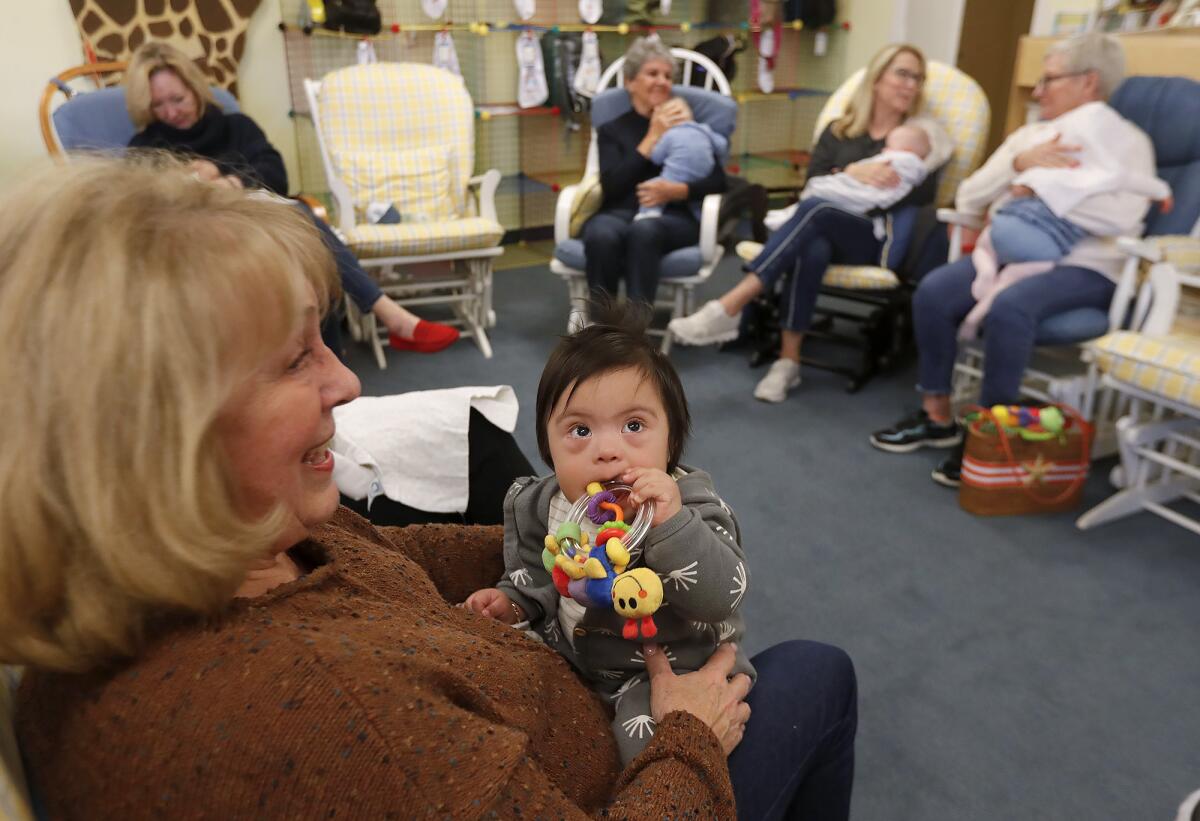
More than anything, a family expecting a child hopes for a clean bill of health.
For families who have received an unexpected diagnosis for their newborns, the early intervention program through the Assistance League in Laguna Beach has been a beacon of hope.
The program tackles developmental disabilities in children through their first year of life. Once a week, therapists guide families through a series of stations designed to help children learn fine, gross and sensory motor skills. Additional stations focus on cognitive and social-emotional development, as well as how to eat.
Lise Busby, an occupational therapist who has worked with the program for eight years, shared some of the activities the babies take part in. The basics in fine motor skills include looking at how the infants grasp things with their hands, she said.
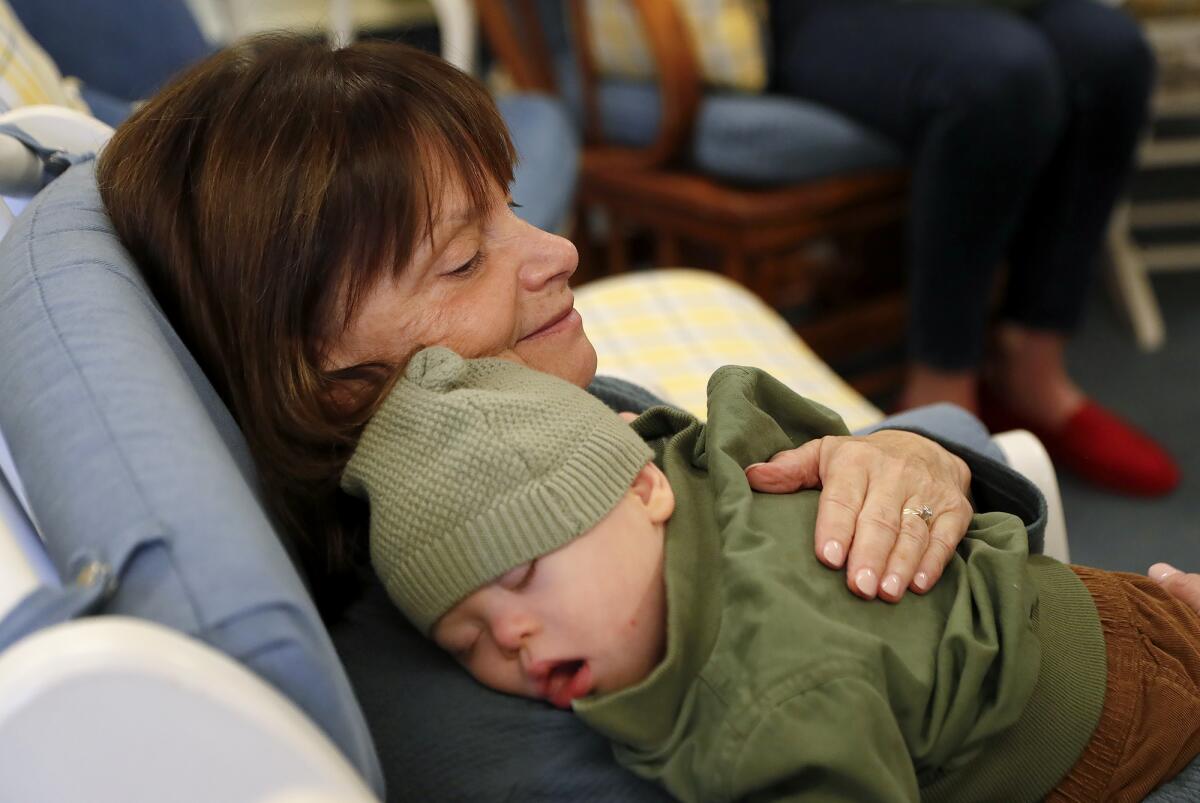
It is an environment without expectation, except the assurance that the children will reach developmental milestones at their own pace.
“They’re all kind of on their own little path,” Busby said. “Some children may excel in the gross motor, but their fine motor will be behind, and then they’ll change. They all kind of focus on different things, one at a time, so we do notice a big difference. We reassure parents and we give them hope that they’re all going to do it. It’s just they’re going to do it on their own time and on their own schedule.”
When participating children reach certain milestones, a graduation — complete with cap and gown — is held for the little achievers.
Hazel Phillips, who resides in Orange, began bringing her son, Scott, to the early intervention program when he was just 8 weeks old. He had suffered a stroke that led to a brain bleed 30 hours into his young life.
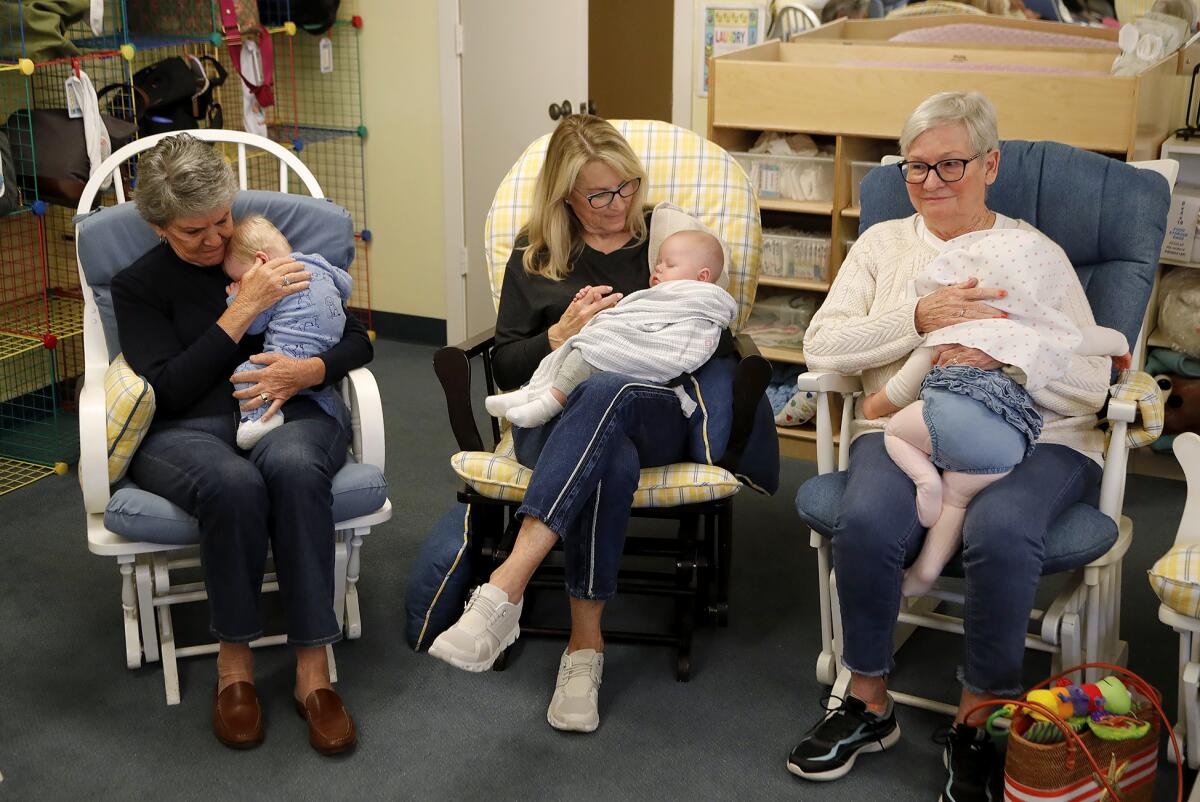
A different therapist works at each station, said Phillips, who added that Scott is currently learning how to roll from his back to his front. Babies are paired with others that are similar in terms of the milestones they have met.
“They don’t see age, they don’t see diagnosis, they just sort of look at where they’re at in life and then you’re able to kind of work on the same thing,” Phillips said. “Not only do they give you individualized treatment when we’re there, they also give you homework, and they give emotional support to the parents to keep them motivated and encourage them to continue to really advocate for our children with regional centers and with any doctors that we might need.
“They’re just like a huge resource for us, and I think that ultimately they’ve allowed me to thrive, which allows Scott to thrive.”
Around since 1976, the early intervention program has connected families facing a new reality of having a child with special needs to others going through similar circumstances, as well as alumni of the program. That has fostered a feeling of community for those who might have otherwise felt they had to go through the journey alone.
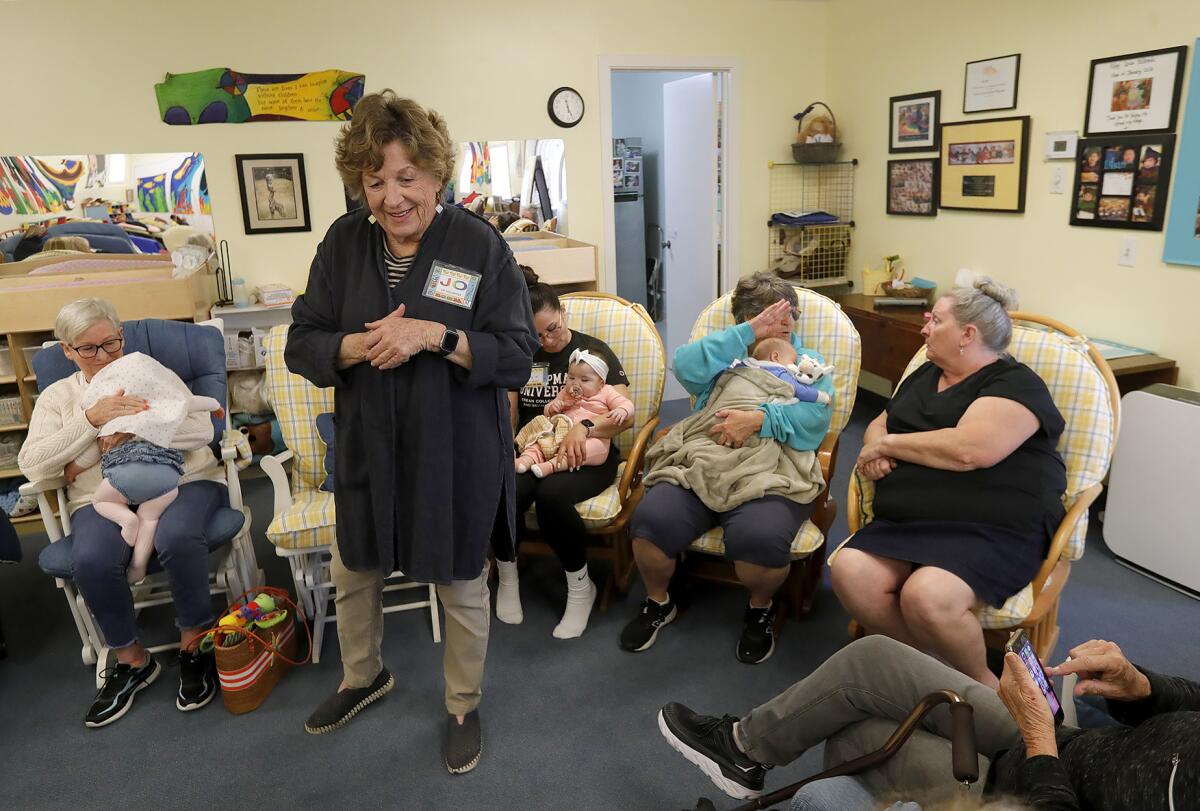
Costa Mesa resident Karina Ortiz has been bringing Bradley, who she said turns 1 on Monday, to the Wednesday sessions for eight months. She added that her family “fits right in at EIP.” Bradley, who was diagnosed with Down syndrome at birth, is on track to graduate in June.
Ortiz admitted to some separation anxiety in going into the separate support group sessions, but there are also volunteers who rock the babies to sleep during the latter half of the visits. Lullabies played in the background as the babies rested following an active morning.
“I think that children, in general, they get super connected,” Ortiz said. “For me, it’s important, if my child is OK to stay with somebody else, I feel like they trust that person. … To detach from my child to go into parent discussion, I was like, ‘Oh, no. I don’t know about this,’ but it’s the best thing that I did because I actually got to know a lot of parents and their stories and how EIP has helped them.
“It truly has helped me open up that grieving stage that I have been suppressing, so it’s helped me grow and just to really accept who we are as a family and our child and his needs.”
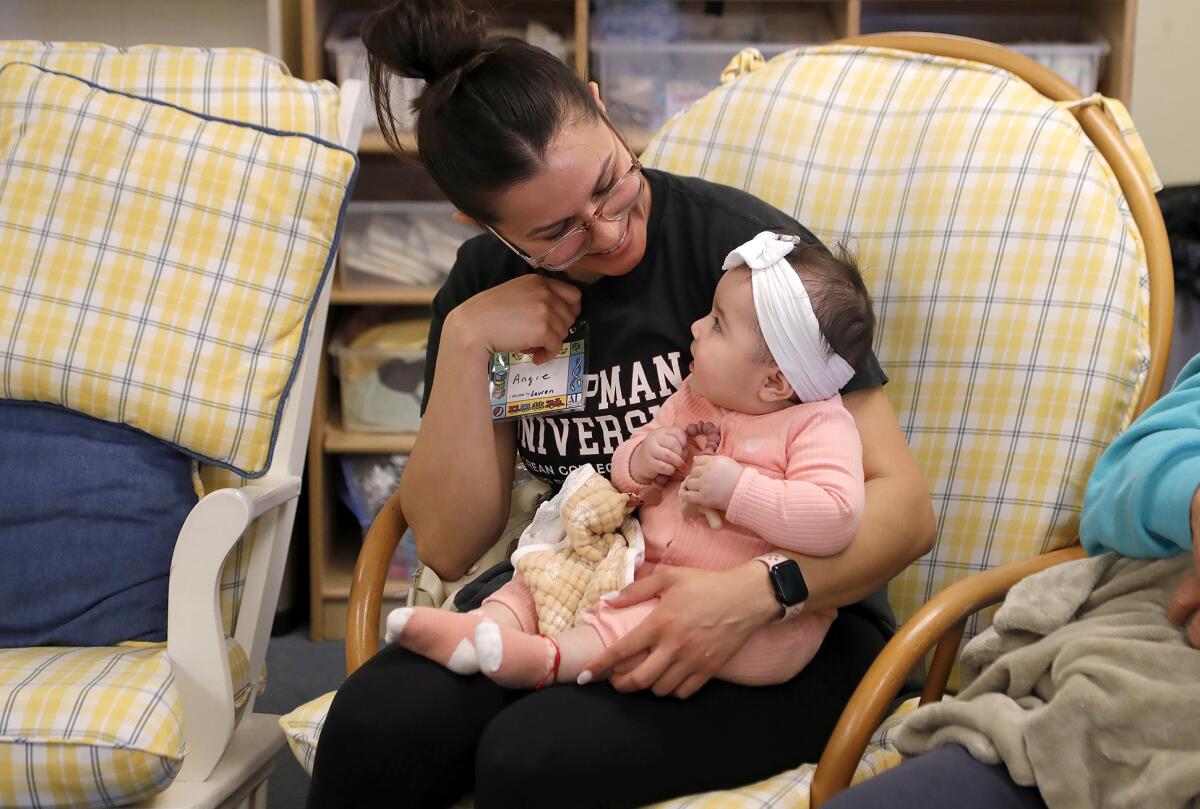
Pam Alexander, the early intervention program director, said that families get connected to their services via word of mouth, as well as through referrals from the Regional Center of Orange County and the Down Syndrome Assn. of Orange County.
In the past, the program would have a waiting list. Alexander said enrollment has not returned to pre-coronavirus pandemic levels. There were about a dozen babies on site this week.
“I think we have 16 on our roster right now, and I used to run between 20 and 25, so there’s still room for availability,” Alexander said.
As for the program’s partnership with the Assistance League, Alexander expressed gratitude and encouraged the community to support.
“Kudos to the Assistance League for their dedication to fund something like this, because it’s really a unique partnership with the Intervention Center for Early Childhood, which is the therapeutic intervention side of it. The Assistance League, they do all of the volunteering, so it’s a unique partnership.”
All the latest on Orange County from Orange County.
Get our free TimesOC newsletter.
You may occasionally receive promotional content from the Daily Pilot.




